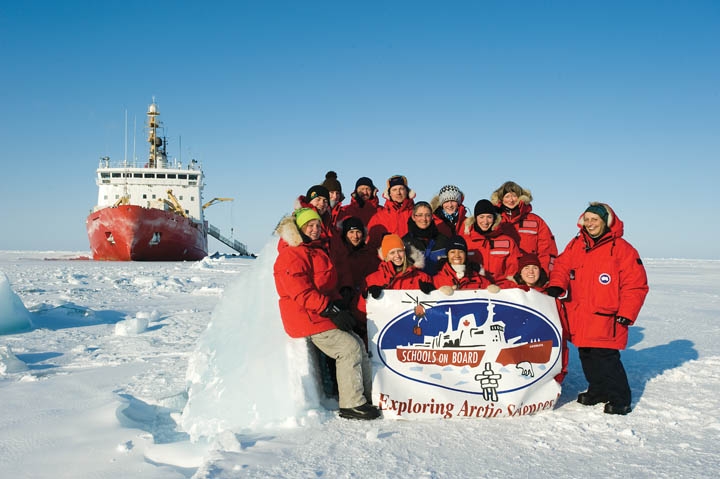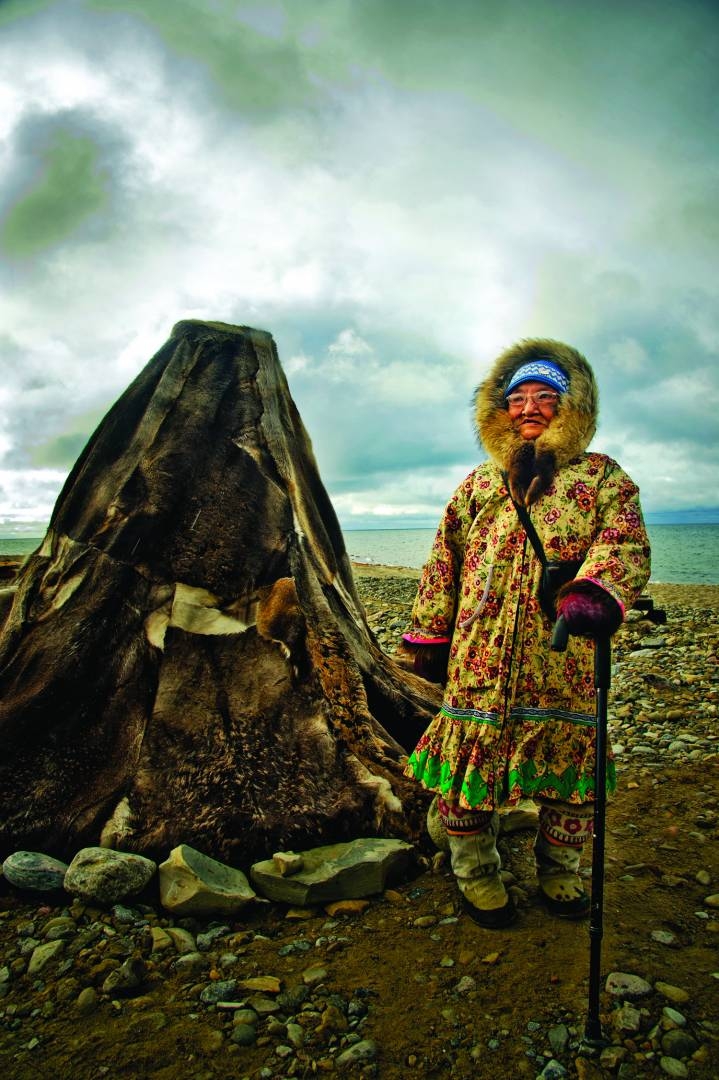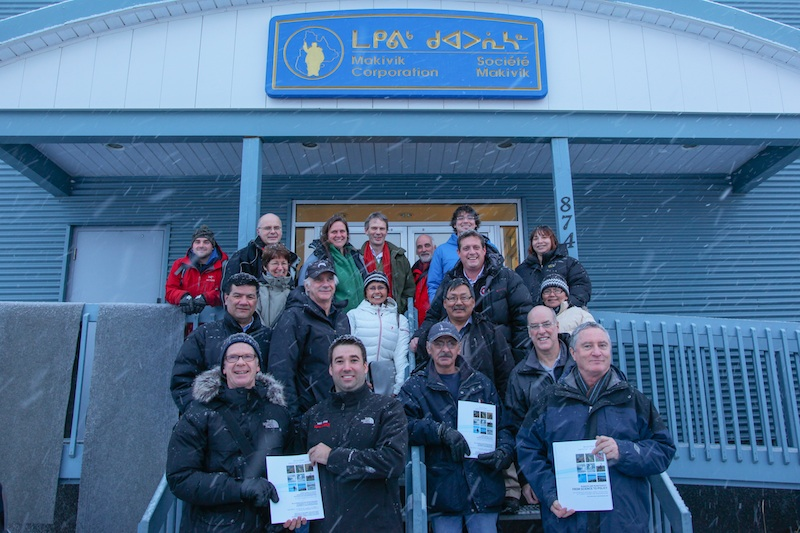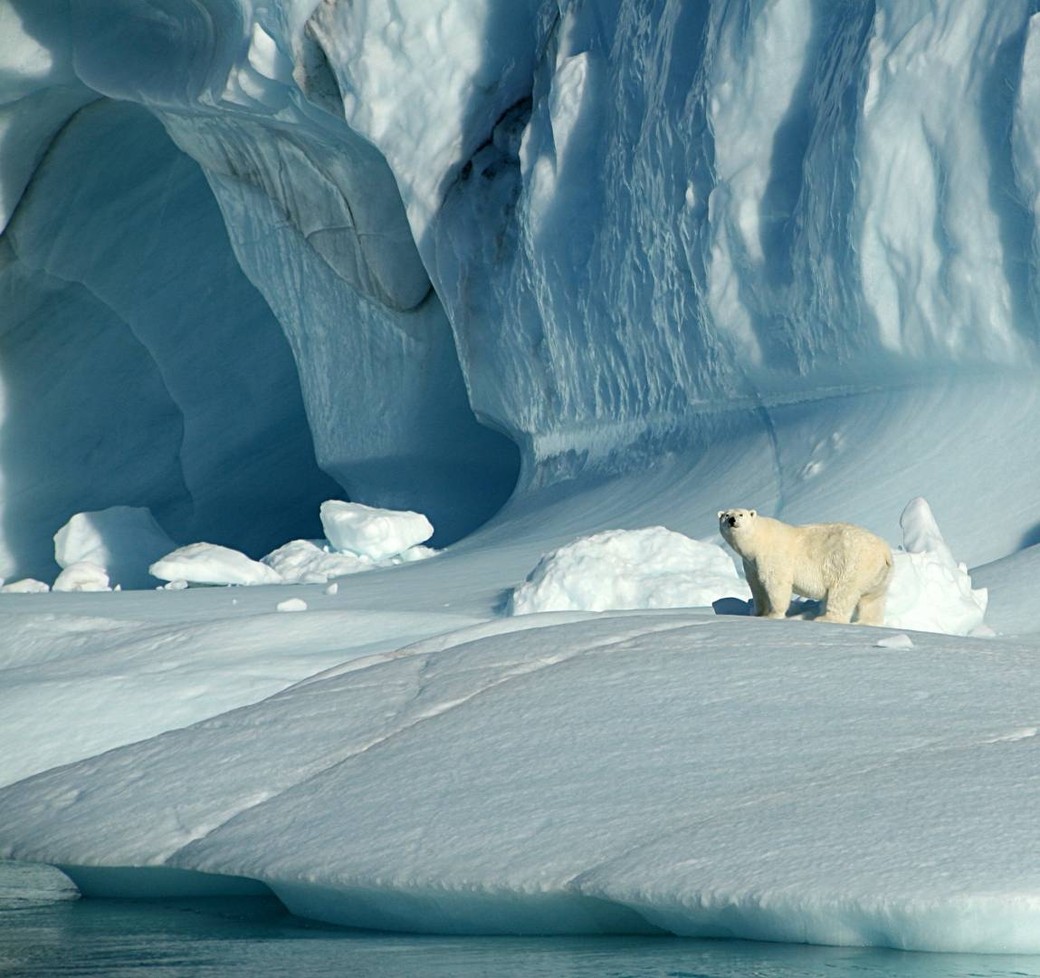
School on Board
10 Years of Bridging Arctic Research and High School Science Education
Since 2004, ArcticNet’s Schools on Board program, based out of the University of Manitoba, has been providing an opportunity for high school students and teachers to swap their regular classroom attire for floater suits, hard hats and steel-toed boots and embark on an Arctic research adventure on board the Canadian Coast Guard Ship (CCGS) Amundsen as it transits through the waters of the Canadian Arctic.

ArcticNet is a Network of Centres of Excellence of Canada that focuses on the impacts of climate change and modernization on the coastal Arctic environment and its people. Through the Schools on Board outreach program, selected groups of high school students and teachers participate in ArcticNet’s annual marine scientific expedition on board the research icebreaker Amundsen. Over the years, program participants have travelled to the Beaufort Sea, through the famed Northwest Passage, along the coast of Baffin Island, and through the spectacular Labrador Fjords.
Since the program’s inception, bridging Arctic climate change research with high school science education has been at the forefront. While on board the CCGS Amundsen, students are exposed to the science program through lectures and workshops presented by ArcticNet scientists, as well as participation in labouratory experiments and on-deck operations including the deployment of plankton nets, oceanographic moorings and seafloor and water-sampling equipment.
A unique feature of the program is the high level of school involvement. Schools from across Canada’s north and south have an opportunity to apply for one of 11 spaces offered each year. Selection is based primarily on how schools propose to use this experience to enhance science programming, connect Arctic sciences to curriculum and increase awareness of climate change and the Canadian Arctic within their school and broader community. Selected schools choose a student or teacher with a strong interest in science who has a record of enthusiasm and participation in activities and events in the school and beyond. Students share their on-board experience and knowledge through a variety of blogs, expedition reports, and presentations.
 In addition to the science, participants explore the environmental and social issues related to climate change in Canada’s Arctic and the role of science in understanding and addressing these issues. The integration of Inuit traditional knowledge and the involvement of northern schools are key to the success of the program. Every program includes a northern community visit where participants connect with local students and community members and get to experience a snippet of northern culture and life. During their experience, students form strong connections among themselves and with the scientists, Coast Guard crew members and northern community members they work with. As one participant commented, “Truly, the best part of this program was meeting all the people – the scientists, crew, other students from Schools on Board and the people in Kugluktuk, Nunavut.”
In addition to the science, participants explore the environmental and social issues related to climate change in Canada’s Arctic and the role of science in understanding and addressing these issues. The integration of Inuit traditional knowledge and the involvement of northern schools are key to the success of the program. Every program includes a northern community visit where participants connect with local students and community members and get to experience a snippet of northern culture and life. During their experience, students form strong connections among themselves and with the scientists, Coast Guard crew members and northern community members they work with. As one participant commented, “Truly, the best part of this program was meeting all the people – the scientists, crew, other students from Schools on Board and the people in Kugluktuk, Nunavut.”
Through the success of the Schools on Board program, several new outreach initiatives were launched. In 2013, Schools on Board piloted a new initiative called Schools on Tundra in collabouration with the Churchill Northern Studies Centre (CNSC) and Parks Canada. At the end of February, nine students and two teachers travelled from across Canada to meet in Winnipeg, where they boarded a VIA Rail train and traveled two and a half days north to Churchill. Hosted at the Churchill Northern Studies Centre, Schools on Tundra participants worked with a variety of scientists and participated in a cross-curricular program that also focused on the culture and history of the area.
In order to expand to larger audiences, Schools on Board also co-hosts an Arctic Climate Change Youth Forum every second year in conjunction with an ArcticNet science meeting or conference. These one-day events are co-hosted with a local high school and planned by student-led committees tasked with organizing a day of learning, critical thinking, and sharing youth concerns, ideas, and perspectives. Climate change research and the role that science plays in policy and decision making are focuses of the Forum.
In total, over 100 students and teachers from more than 50 Canadian high schools have been involved in the Schools on Board outreach program. A special international edition of the program during the International Polar Year in 2008 welcomed participants from the United States, China, the United Kingdom, Spain, Sweden, Scotland, Norway, Germany, Greenland and Russia on board the Amundsen. Through participant testimonials, one can begin to understand the program’s impact and the transformation that occurs through this unique science education initiative. “The biggest ‘aha’ moment for me (because I experienced many) was understanding why the Arctic is getting affected faster than the rest of the world by climate change,” observed a recent program participant.
Schools on Board received the Canadian Award of Excellence in Environmental Education from the Canadian Network for Environmental Education and Communication (EECOM) and the University of Manitoba Outreach Award, and has been nominated for the Natural Sciences and Engineering Research Council of Canada (NSERC) Awards for Science Promotion and UNESCO’s Best Practices in Education for Sustainable Development. Participants in the 2013 program will join ArcticNet researchers on board the Amundsen in early October for the transit through the Northwest Passage from Kugluktuk to Iqaluit.
For further information: www.arcticnet.ulaval.ca/sb
Michelle Watts is Schools on Board Program Co-ordinator for the University of Manitoba









